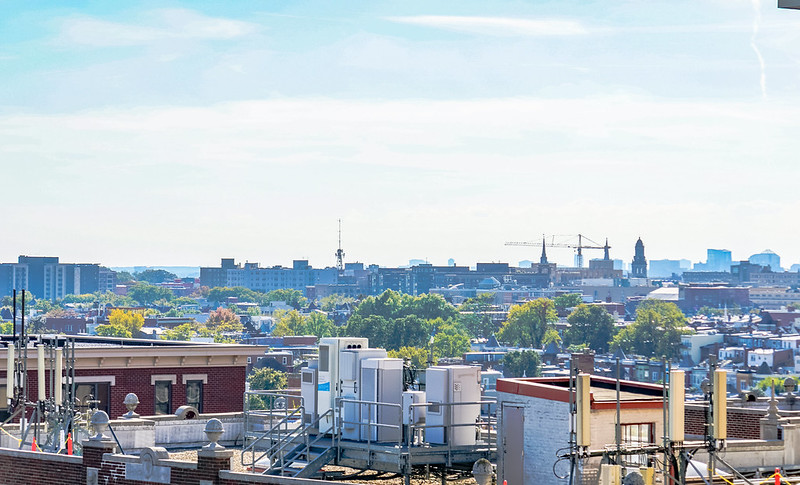This article was featured in the May 27 digital-only edition of Street Sense. Until it is safe to resume person-to-person sales, you’ll always be able to find the current digital-only edition at streetsensemedia.org/Digital Thank you for reading! Please continue to support our vendors through our mobile app (streetsensemedia.org/App).
Part of a May 9 virtual roundtable sponsored by the nonprofit Empower D.C. centered on the challenges of housing homeless people in D.C. with the added complications of the coronavirus. Ward 1 Councilmember Brianne Nadeau, who is a member of the Interagency Council on Homelessness, said she has been advocating for putting people in hotels. As Street Sense Media previously reported, three hotels have been used to quarantine people with symptoms and those who have tested positive. Two others have been used to help medically vulnerable people self-isolate. According to city data, 292 shelter residents had tested positive for COVID-19 and 154 members of the homeless community were in remote quarantine as of May 25.
It’s also important, she said, to get people, especially people who are exposed, out of congregate housing sites, where multiple people receive support services in the same housing location.
For families who aren’t homeless but are at risk of not being able to afford their housing, Nadeau argued for pursuing federal funding for rental assistance. “We need a way to keep people in their homes,” she said. “We need to be thinking more creatively in this COVID-19 time.”
Panelists also discussed how to handle the displacement of public housing residents due to redevelopment of various properties during the coronavirus pandemic. At the Park Morton public housing apartment building, which has been slated for demolition, the D.C. Housing Authority originally proposed housing the development’s residents nearby while redevelopment was underway.
That temporary housing, however, has been held up by a legal challenge from residents of the neighborhood, and the District has begun encouraging residents of Park Morton to move off the property without any substitute housing nearby.
Low- and moderate-income residents want to remain in the neighborhoods they’ve called home for a long time, said Shonta High, the resident council president at Park Morton. She said they also want more equitable treatment from the District if they’re going to be forced to move.
Nadeau, who sat on the panel, co-introduced a bill in January called the Tenant Protection Amendment Act, which would protect public housing tenants from displacement in the event of renovation of a Housing Authority property.
“What we need is a safe place to be so Park Morton residents can stay home and take care of themselves,” said roundtable participant Reginald Black, who is also a Street Sense Media artist and vendor. Black suggested that vacant housing units be used to depopulate the homeless shelters.
The panel also touched on the role of rent control, rent freezes and other ways of stabilizing the cost of living during the COVID-19 outbreak.
Roger Williams, of the D.C. Tenants Union, commented that renters now have an unprecedented opportunity to demand cost-stabilizing measures, but said he’s afraid that window will slam shut “hard and fast.” Renee Bowser, a community activist and former candidate for the Ward 4 D.C. Council seat, asked everybody if such funding tools as rental freezes and mortgage deferments go far enough. Since March, the D.C. Tenants Union has been calling for missed rent and mortgage payments during the public health crisis to be forgiven. The group claims to be organizing individual “cancel rent” campaigns in more than 20 aparmtnet buildings.
“We have to make sure we’re thinking through the long-term solutions now,” said Caitlin Cocilova, a staff attorney for the Washington Legal Clinic for the Homeless.
Conversation finally turned to the underlying issue of the District’s lack of all kinds of housing. Black said there’s still a need for more affordable units built and more rental subsidies. Nadeau agreed that more housing needs to be built for people who need it.
Empower D.C., sponsor of the roundtable, proposes that $60 million be dedicated by the District to public housing.
Nadeau reminded everybody that in the city now, it’s illegal to build more than one house on a lot, adding that the District needs to be more family housing- and more affordable housing-oriented to accommodate a growing population.
“People shouldn’t be pushed out when progress hits their neighborhood,” she said.








